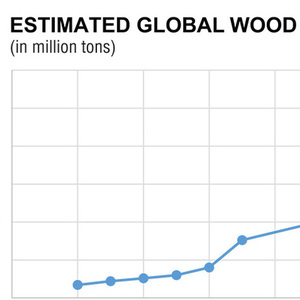WBA report shows importance of bioenergy to Europe




September 9, 2016
BY Erin Krueger
A recent study published by the World Bioenergy Association addresses the challenges European cities are facing within global climate mitigation policy and explains the contributions biomass can offer to reduce the use of fossil fuels.
Within the report, WBA discusses natural gas consumption and imports, noting natural gas was shown to have 19,600 metric tons more in CO2 emissions compared to wood pellets, both measured in the quantity of 100,000 gigawatt-hours (GWh) of primary energy.
Advertisement
Advertisement
Although natural gas production is shrinking in Europe, European forests are growing. According to WBA, 290 million cubic meters of wood could be harvested annually from forest for wood supply without decreasing the live wood volume below its replacement. With forest growth, pellet production has also grown steadily. From 2004 to 2014, global pellet production grew 21 percent annually from 4 million metric tons to 27.1 million metric tons. Main producing regions in Europe accounted for 16.2 million metric tons in 2014 and North America 8 million metric tons. In the next 15 years, global pellet production is forecast to surpass 50 million metric tons.
Advertisement
Advertisement
Upcoming Events





